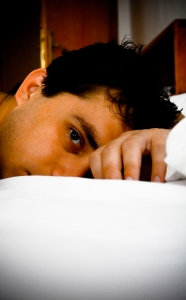Getting a good night’s rest is just as important as having a healthy diet and exercising regularly. Research has shown that a lack of sleep has immediate effects on your brain function, exercise performance and hormones. Poor sleep can also cause weight gain and even, increase disease risks for both children and adults. On the contrary, healthy sleep not only enhances your ability to function better, but it ultimately makes you a healthier person.
The Keys to a Healthy Sleep 
Unhealthy lifestyle choices and daytime habits can leave you tossing and turning at night, thus affecting your mood the next morning. By simply experimenting and following tips, it’ll help you find which ones work the best for you.
Healthy sleeping habits can make a huge difference in your daily life. Having good sleep hygiene is of the utmost importance. Here are a few tips that will help you sleep better:
- Stick to a sleep schedule-having a routine sleep schedule that consists of the same wake-up and bedtime each day will help regulate your body better. This will also help you stay asleep for the night.
- Control the amount of light exposure-sometimes we can’t sleep effectively at night because of the amount of light that our body is exposed to. Our brain secretes more melatonin (a natural hormone that’s controlled by light) when it’s dark. Once this happens, it tends to make us sleepy.
- Exercise throughout the day-people who exercise during the day seem to sleep better at night. Exercising regularly boosts your energy and improves the symptoms of insomnia.
- Be wise about what you eat and drink-try to avoid caffeine, big meals and sugary foods before you go to bed. Your daytime eating/drinking habits play a role in how well you sleep during the night.
Looking for Primary Doctor Care?
Sleeping well affects your mental and physical health. Anything out of the norm can take a serious toll on your emotional balance, productivity and daytime energy. Making simple, but important changes to your daily routine can create a major impact on how you sleep. If you are looking for primary doctor care and consultation, Westland Clinic can help. Contact us today at 734.728.2130.





 resist the urge to snack on foods loaded with carbs or sugars. Instead opt for sleep-inducing foods like turkey or nuts.
resist the urge to snack on foods loaded with carbs or sugars. Instead opt for sleep-inducing foods like turkey or nuts.